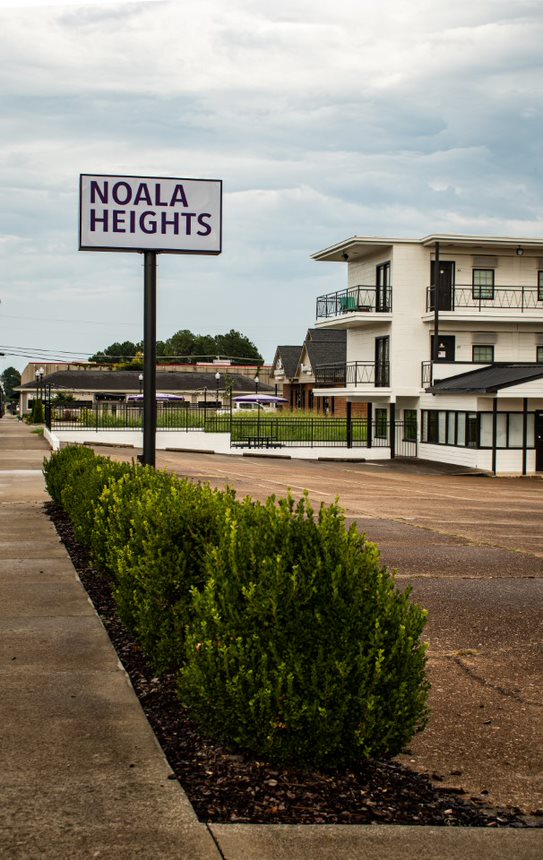SGA begins 2022-23 term
September 8, 2022
The 2021-22 school year introduced unique challenges for UNA’s Student Government Association (SGA). Senators voted on whether an impeachment trial should be held for former president Jake Statom, but a ⅔ majority was not reached. Internal issues ran rampant.
In her address to the student body, current SGA President Amber Sandvig outlined her plans for the 2022-23 school year.
The semester’s first SGA meeting on Aug. 25 lacked the tension of the previous school year.
Two senators (Macauly Sheppard and Carson Scott) resigned prior to the first meeting, leaving two general seats empty. Applications closed on Aug. 29 and interviews were held Aug. 30 and 31.
New senators sworn in were AJ Miller, Sawyer Wright, Alyssa Ledlow, Apurv Raj and Maddilyn Willis. Senator Treasure Franklin and Chairwoman Whitney Austin did not vote for Ledlow due to alleged comments regarding the Black community.
The Senate’s numbers are small compared to previous years. The senate adopted a new election structure and reapportioned the number of students representing each college. The freshman population remains eager to join, as Freshman Forum Advisor Rebekah Callahan reported there were over 100 applications. Interviews were cut down to only 60 students and 40 made the cut for Freshman Forum.
Chairman Kabir Oyewale and Senator Yashi Srivastava began the meeting by advocating for international students. The university subleased Noala Heights Apartments, formerly known as Lions Den Efficiency Apartments, and modified the building into space for international student housing.
According to Housing & Residence Life (HRL), some of its amenities include wireless internet and a community kitchen, however Chairman Oyewale revealed issues with both. As of Aug. 25, students were provided internet via individual hotspots. Both Rice Hall and Noala Heights did not have functioning community kitchens (after being out of commission for three consecutive semesters, Rice Hall’s kitchen was fixed Sept. 1). Noala’s is still not in working condition.
“When it comes to student welfare, as time goes by we’re going to have some issues that need our attention,” Senator Oyewale said.
Further issues international students faced were in regards to the buses that transport students to the local Walmart for groceries. The one bus that is in operation, has no working air conditioning and the windows are unable to open. According to Oyewale, another bus will soon be introduced.
Oyewale gave an update at the Sept. 1 meeting regarding housing issues after conversation with HRL director Jennifer Sutton. Wireless internet was running at Noala Heights as of the afternoon of Sept. 1. The lighting in Noala Heights remains poor. According to Sutton, it is set to be worked on soon.
Another concern Oyewale noted was that Nola Heights lacked furniture for international students living there. Baptist Campus Ministries (BCM) initially planned to donate chairs, but had not as of the Sept 1. Senate meeting. Sutton said that plans are in place in the case that BCM does not fulfill their promise.
Noala residents also found issue with the lack of a lobby. Students who wish to study outside of their rooms have few options. HRL has no plans to include a lobby, as they find the community kitchen and living area sufficient enough.
Senate still plans to make changes around campus — including the possible introduction of Bird electric scooters. Nearly 40 colleges have already partnered to add these to campuses including UCLA, Duke University and the University of Memphis. Two senators (Senator Kody Purinton and Chairwoman Isabella Medrano) had previous experience with them. Purinton raised concerns with the size of the campus, as Birds were needed on larger campuses but seemed somewhat useless on a 200-acre campus (compared to University of Memphis’ 1,600-acre campus).
The representative for Bird spoke to senators on Sept. 1 to answer questions. Mane Cards/Lion Loot would likely not be usable on the scooters and would need to be charged on a credit or debit card. The charge for using the scooters is $1 to unlock, then $0.42 to $0.49 per minute. Those on state assistance or with pell grants will get a 50% discount on rides. The scooters’ charge lasts for 35 miles and the top speed is 15 mph.
Scooters would be left in areas that data deems to be most popular. They would also be monitored by a “fleet manager” in charge of preventing theft and retrieving scooters students leave behind.
It was also revealed in the meeting that Bird’s deal with Florence hinges on UNA’s approval. Mayor Andy Betterton agreed to have scooters in the city only if the university agrees to have them on campus.
“If we’re getting the scooters for fun purposes, I think they’re great,” said SGA Communications Director Caroline Conkle.. “If we’re getting the scooters as a way to transport people from one destination to the next, I think they’re a little silly in the way that they’re smaller and less efficient.”
Pro Tempore Mackenzie Martin pointed out that if scooters were introduced, e-bikes would still exist. They are much more limited than the scooters would be, as there are only fifty on campus. If scooters were introduced, there would be up to 75 available.
“I can’t ride a bike, so the bikes are of no use to me,” said Chairwoman Madison Reese. “I have hip problems so I can’t ride a bike, but with a scooter I can just stand there. I feel like [the scooters] would be a lot more convenient for me personally. I want you guys to think about those who can’t ride bikes.”
Senators tabled the scooter discussion for a later meeting.
Another discussion was the changes to the wording of immunization requirements. The main goal is to “crack down” on those who manage to start school without submitting their immunization forms. The changes also include recommended immunizations.
One of the recommended vaccinations is the COVID-19 vaccine. It is not required, as there is no current mandate, but the university wants to encourage students to become immunized to COVID-19. Religious exemptions for mandated vaccinations are still accepted.
Senators voted unanimously to pass the changes. These will only be in effect for new students.
The senate also passed a bill to pay for new camera equipment in the chambers. Information and Technology Services (ITS) would give SGA a new amplifier, speaker and microphone. SGA would pay for a pan-tilt-zoom camera, but the total would come out to be $2,600 to $3,000. The current Senate budget is $8,661.68. The bill passed unanimously.
The senate also intends to increase involvement for students and senators alike. They encourage students’ presence at senate meetings and plan to attend events on campus themselves. With the new camera equipment, they wish to Zoom guest speakers and possibly students for extended engagement.



